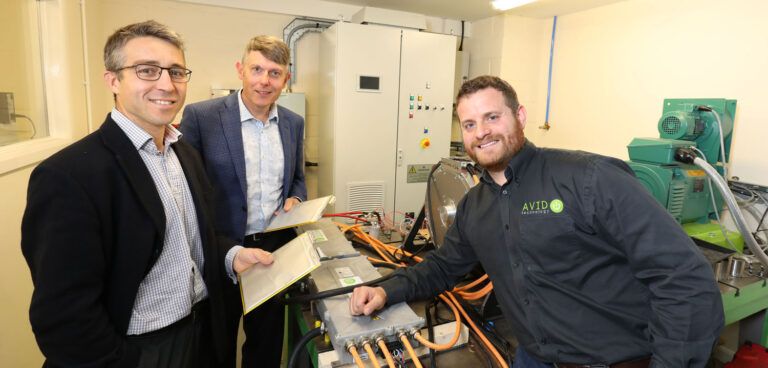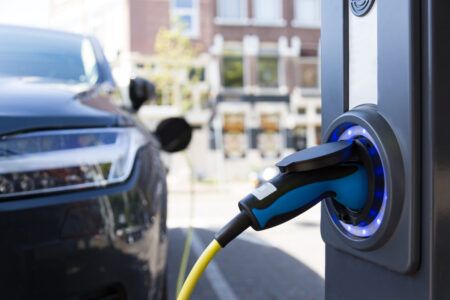Cleantech engineering firm AVID Technology has joined forces with Caterpillar UK and Imperial College London to develop a new battery-storage system for electric off-highway machinery.
Part-funded by Innovate UK’s Faraday Challenge Industrial Strategy Fund, the project is worth £2.8m (US$3.7m), and will see the consortium working together to significantly improve battery life through advanced controls, monitoring and thermal management.
The project’s aim is to create an advanced battery system capable of meeting the lifecycle and load demands of a heavy-duty electric or hybrid vehicle, while delivering the high levels of energy density required.
Utilizing sophisticated simulation techniques, the team will also demonstrate that integrated powertrain systems featuring battery storage can be commercially viable for electric and hybrid vehicles in the commercial on-highway as well as off-highway sectors.
“We are excited to be working with Caterpillar and AVID Technology on developing the next generation of advanced battery packs for industrial machinery and heavy-duty on-road vehicles,” said Dr Gregory Offer from Imperial College London (and regular columnist for E&H Vehicle).
“The project will bring together multiple innovative ideas to deliver a step change in performance and cost for these aggressive applications, helping to develop the UK supply chain and create a world-class battery industry in the UK.”
AVID’s core expertise lies in the design of power electronics and motors used in electric propulsion systems for the electric and hybrid vehicle industry, robotics and aerospace sectors.
“We are delighted to be collaborating with Caterpillar and Imperial College London on this R&D project,” added Ryan Maughan, managing director of AVID Technology Group. “In recent years there have been major advances in energy storage driven in part by the boom in the automotive sector for electric and hybrid passenger cars. This has resulted in huge improvements in energy density and crucially cost.
“However, the emissions and environmental impact of heavy-duty vehicles such as trucks, buses and construction machinery is far greater due to the high operating hours and power factors required.
“This means there is huge potential for the design and manufacture of electrification systems to improve the situation. But it also presents several challenges in delivering electric vehicle drivetrains that are robust enough and able to deliver the performance required.
“By working in collaboration with Caterpillar and Imperial College London, we have the potential to make a real impact at the cutting-edge of innovation in battery technology in the UK.”





